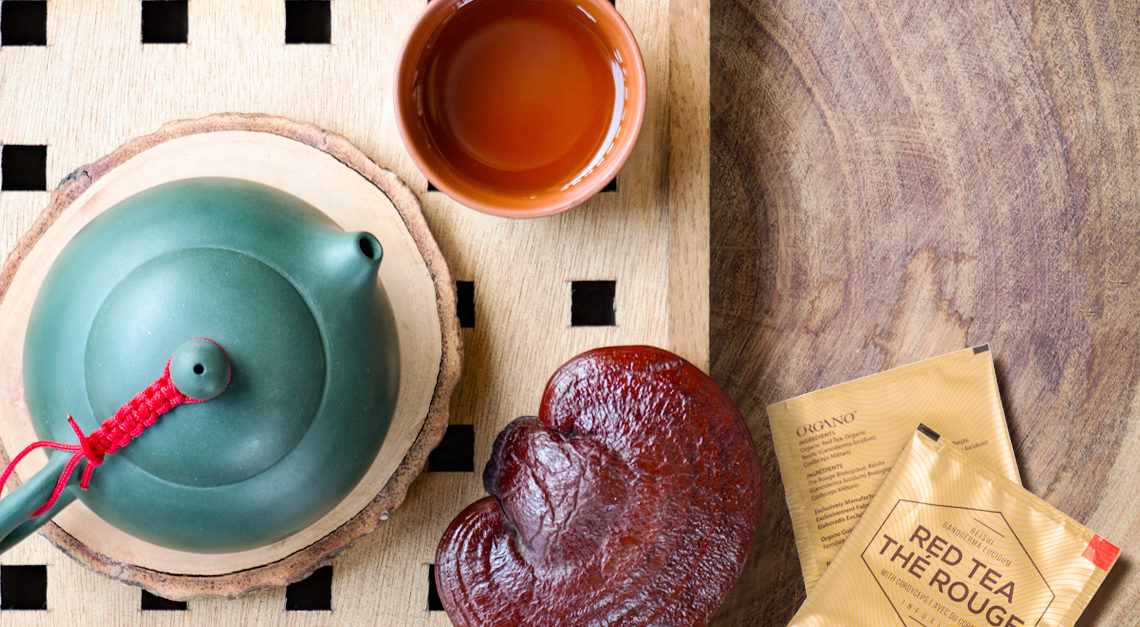Tea is a beverage so deeply entrenched in human history, culture, and tradition that its influence spans continents and millennia. Its soothing nature has made it essential in ancient rituals to modern-day ceremonies, offering a momentary respite from the chaos of life. Let’s learn more about this legendary beverage and how its marriage with mushrooms is making it one of the top options for wellness in the modern world.
A Brief History of Tea
The story of tea begins in ancient China, where, according to legend, Emperor Shen Nong accidentally discovered it around 2737 BCE. As the story goes, a few tea leaves blew into a pot of boiling water he was preparing, creating a fragrant infusion that captivated his senses; that’s how the tradition of tea drinking was born.
Originally consumed for its medicinal properties, tea gradually evolved into a social and cultural phenomenon, spreading from China to other countries like Japan and Korea, and eventually made its way to Europe and beyond via the ancient Silk Road. Along the way, different cultures embraced tea in their own unique ways, incorporating it into religious rituals, social gatherings, and daily routines.
In Japan, the traditional tea ceremony, known as “chanoyu” or “sado,” became an art form, emphasizing harmony, respect, purity, and tranquility. In the UK, tea became synonymous with afternoon tea parties, a social ritual that continues to this day. In India, tea plantations sprang up during British colonial rule, leading to the birth of the iconic Indian chai—a flavorful blend of black tea, spices, milk, and sugar.
The Cultural Significance of Tea
Beyond its flavor and aromatic allure, tea holds deep cultural significance for many. In China, tea is celebrated as a symbol of hospitality, friendship, and respect. In Japan, it embodies the principles of Zen Buddhism and mindfulness. In the UK, it’s a cornerstone of social etiquette.
This herbal beverage has played a pivotal role in shaping history, from the Opium Wars in 19th-century China to the Boston Tea Party in colonial America. Today, tea remains one of the most consumed beverages in the world, cherished by millions for its warmth, revitalizing energy, and myriad health benefits.
Mushroom Tea, an Innovation
While tea has a long and storied history, another beverage has been quietly gaining popularity in recent years: mushroom tea. Also known as fungal infusion, it blends the earthy flavors of mushrooms with the soothing qualities of tea leaves.
Mushroom tea has been enjoyed for centuries in various cultures around the world, prized for its medicinal properties and therapeutic effects. In traditional Chinese medicine, certain mushrooms like reishi and lion’s mane have been used for their immune-boosting, anti-inflammatory, and adaptogenic properties. When combined with tea, these mushrooms create a powerful brew that’s both nourishing and invigorating.
Health Benefits of Mushroom Tea
Immune Support
Some mushrooms used in mushroom tea, such as reishi and cordyceps, contain bioactive compounds like beta-glucans and polysaccharides that have been shown to modulate immune function and enhance the body’s defenses.
Anti-Inflammatory Properties
Compounds found in mushrooms like reishi and lion’s mane exhibit potent anti-inflammatory effects, which may help reduce inflammation and alleviate symptoms associated with it, and mixed with green tea they can double their benefits.
Cognitive Enhancement
Tea enhanced with Lion’s mane contains compounds known as hericenones and erinacines, which have helped improve cognitive function, enhance memory, and protect against age-related cognitive decline.
Stress Reduction
Adaptogenic mushrooms (Ganoderma, for example) have been traditionally used to combat stress and promote relaxation. Studies suggest that these mushrooms may help regulate the body’s stress response system, leading to reduced levels of stress hormones like cortisol.
Antioxidant Protection
Mushrooms and tea are rich sources of antioxidants, including phenolic compounds, flavonoids, and polyphenols, which help neutralize harmful free radicals and protect cells from oxidative damage. Regular consumption of mushroom tea may contribute to overall health and longevity.
And while the world of tea continues to evolve and innovate, with new flavors and blends constantly emerging, there’s something timeless and comforting about brewing some tea and savoring it slowly, one sip at a time. So, take a moment to pause, reflect, and appreciate its richness. Cheers to the timeless elixir that is tea!
About ORGANO®
Founded in 2008 as Organo Gold, ORGANO® is dedicated to bringing the benefits of the earth’s nutritional riches to people throughout the world via its premium products that can be used daily to help to achieve a more energetic and healthier lifestyle.
#WeAreOrgano

